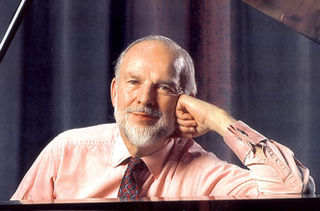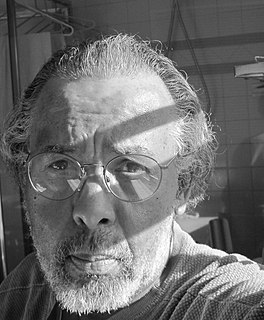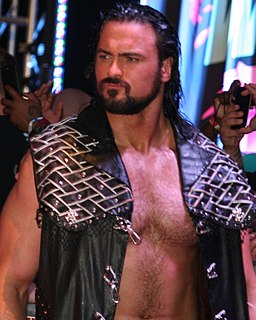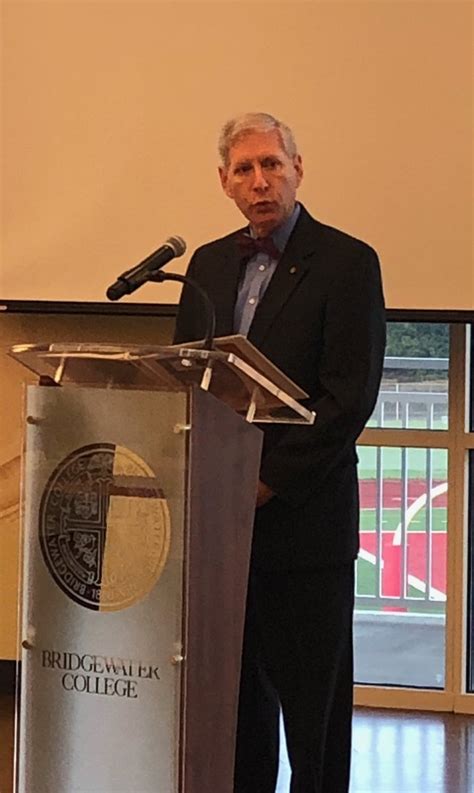A Quote by William P. Perry
Inspiration can show up almost any time, though I have yet to see anyone scratching out melodic ideas on a restaurant napkin as legend would have us believe. I think inspiration comes from concentration, and early on I learned about Mark Twain's habit of leaving for his study after breakfast and not reappearing until the end of the day, ready to read to his family what he had just written. That set a good example for me, although I didn't copy his habit of taking twelve cigars along.
Quote Topics
About
After
Almost
Along
Although
Any
Anyone
Believe
Breakfast
Concentration
Copy
Day
Early
End
End Of The Day
Example
Family
Good
Good Example
Habit
Had
His
Ideas
Inspiration
Just
Learned
Leaving
Legend
Mark
Me
Melodic
Napkin
Out
Read
Ready
Restaurant
Scratching
See
Set
Show
Study
Taking
The End Of The Day
Think
Though
Time
Twain
Twelve
Until
Up
Us
Would
Written
Related Quotes
It was an unforgettable picture to see Chopin sitting at the piano like a clairvoyant, lost in his dreams; to see how his vision communicated itself through his playing, and how, at the end of each piece, he had the sad habit of running one finger over the length of the plaintive keyboard, as though to tear himself forcibly away from his dream.
When I contrast the loving Jesus, comprehending all things in his ample and tender charity, with those who profess to bear his name, marking their zeal by what they do not love, it seems to me as though men, like the witches of old, had read the Bible backward, and had taken incantations out of it for evil, rather than inspiration for good.
Abbie Hoffman's inspiration was, in a sense, inadvertent. I wanted to do something to celebrate the 20th anniversary of Woodstock at the time, and it just happened that Abbie died the same year. Hoffman was always an inspiration to me, for his activism and execution of that activism, and any of his books will give you a guide and a map to creating almost anything, if you apply it to what it is you want to do.
Walden - all his books, indeed - are packed with subtle, conflicting, and very fruitful discoveries. They are not written to prove something in the end. They are written as the Indians turn down twigs to mark their path through the forest. He cuts his way through life as if no one had ever taken that road before, leaving these signs for those who come after, should they care to see which way he went.
As a child, he had hardened his heart and learned to take their punches. He had learned to spit back and take down anyone who cast a jaundiced eye or who made a comment about either him, his mother, or his sister. He’d told himself that he didn’t need anyone’s love or caring. And so he had learned to live like a feral animal, always ready to strike out when someone tried to touch him.
Acts 10:38 says, “See how God anointed Jesus of Nazareth who went about doing good.” He just got up every day and did good. Everywhere he went, even though he had a purpose and he was headed somewhere, he let himself be interrupted by the needs of people. So often we study the steps of Jesus. Maybe we need to study the stops of Jesus. The things that he stopped for, the things that interrupted his plan, where he would alter his plan and help somebody here and there.
Was his life nothing? Had he nothing to show, no work? He did not count his work, anyone could have done it. What had he known, but the long, marital embrace with his wife. Curious, that this was what his life amounted to! At any rate, it was something, it was eternal. He would say so to anybody, and be proud of it. He lay with his wife in his arms, and she was still his fulfillment, just the same as ever. And that was the be-all and the end-all. Yes, and he was proud of it.
John Lennon was just one of us, another human just trying to get through the day, and help make tomorrow a little better. And he was willing to put his thoughts and feelings about all that into his music, and when he had the chance to speak in interviews. He was only around for a short time, but he learned so much and was willing to give his heart and mind to all of us. What he had to say still resonates with me, with all of his fans.
The Master gives himself up to whatever the moment brings. He knows that he is going to die, and her has nothing left to hold on to: no illusions in his mind, no resistances in his body. He doesn't think about his actions; they flow from the core of his being. He holds nothing back from life; therefore he is ready for death, as a man is ready for sleep after a good day's work.
Wherein lies a poet's claim to originality? That he invents his incidents? No. That he was present when his episodes had their birth? No. That he was first to repeat them? No. None of these things has any value. He confers on them their only originality that has any value, and that is his way of telling them." Mark Twain "...every literature, in its main lines, reflects the chief characteristics of the people for whom, and about whom, it is written.
Of course, a psychologist would find it more direct to study the inspired poet. He would make concrete studies of inspiration in individual geniuses. But for all that, would he experience the phenomena of inspiration? His human documentation gathered from inspired poets could hardly be related, except from the exterior, in an ideal of objective observations. Comparison of inspired poets would soon make us lose sight of inspiration.
































